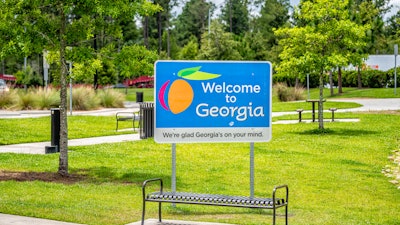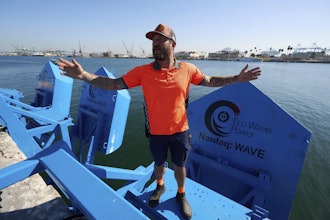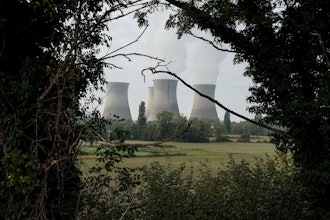
DALTON, Ga. (AP) — A Korean solar panel maker announced Thursday that it will expand its presence in Georgia, building a new $171 million plant next to an existing factory in Dalton.
The new plant will open in the first half of 2023 and will hire 470 people, Qcells, a unit of Hanwha Solutions, said in a written statement. The company already has 750 workers at its existing northwest Georgia factory.
In 2019, Qcells opened a 300,000-square-foot (28,000-square-meter) factory in Dalton that assembles 1.7 gigawatts of solar modules each year. The company said it is the largest solar panel factory in the Western Hemisphere. The new factory will have a capacity of 1.4 gigawatts. Once the second plant is built, Qcells will control almost a third of all American solar module assembly, the company said.
Qcells said it sells 24% of all solar modules installed on American homes and 21% of all modules installed on commercial buildings. The company also describes itself as a leading supplier to large solar farms that provide electricity to utilities.
The company had announced plans for a U.S. expansion earlier this month without saying where.
Qcells is paying Whitfield County $1.7 million for 30 acres (12 hectares) next to its existing plant, county commission chairman Jevin Jensen told the Dalton Daily Citizen.
Carl Campbell, executive director of the Dalton-Whitfield Joint Development Authority, said Qcells would pay new employees at least $17 an hour.
Qcells could claim various tax breaks, including an income tax credit that would allow it to annually deduct $3,000 per job from state income taxes — up to $7 million over five years — as long as workers make at least $30,628 a year.
The solar plant is another large Korean investment in Georgia. Last week, the Hyundai Motor Group announced a $5.5 billion electric vehicle and battery plant near Savannah. The SK Group has built a $2.6 billion, 3,000-job electric battery plant built near the city of Commerce.
“Georgia has become the clean energy manufacturing heart of America, and we are proud to contribute to the state’s advanced manufacturing economy,” Qcells CEO Justin Lee said in a statement.
The administration of Republican Gov. Brian Kemp has cultivated ties with South Korea: Kemp said he visited Hanwha officials during a trade mission to the country in 2019.
“The state of Georgia and Korea have enjoyed an outstanding partnership for decades, supported by a dedication to relationship building,” Kemp said in a statement.
U.S. Sen Jon Ossoff, a Democrat, told reporters Thursday that he met with Hanwha officials while in South Korea last year and encouraged them to invest more, saying additional solar panel production in the United States lessens dependence on China.
“We cannot continue to rely upon China for solar panels,” Ossoff said. “Our access to this technology is a matter of national security and energy independence. And so by growing our domestic manufacturing capacity in solar energy, and doing it right at home in Georgia, we are strengthening our national security and our energy independence.”






















